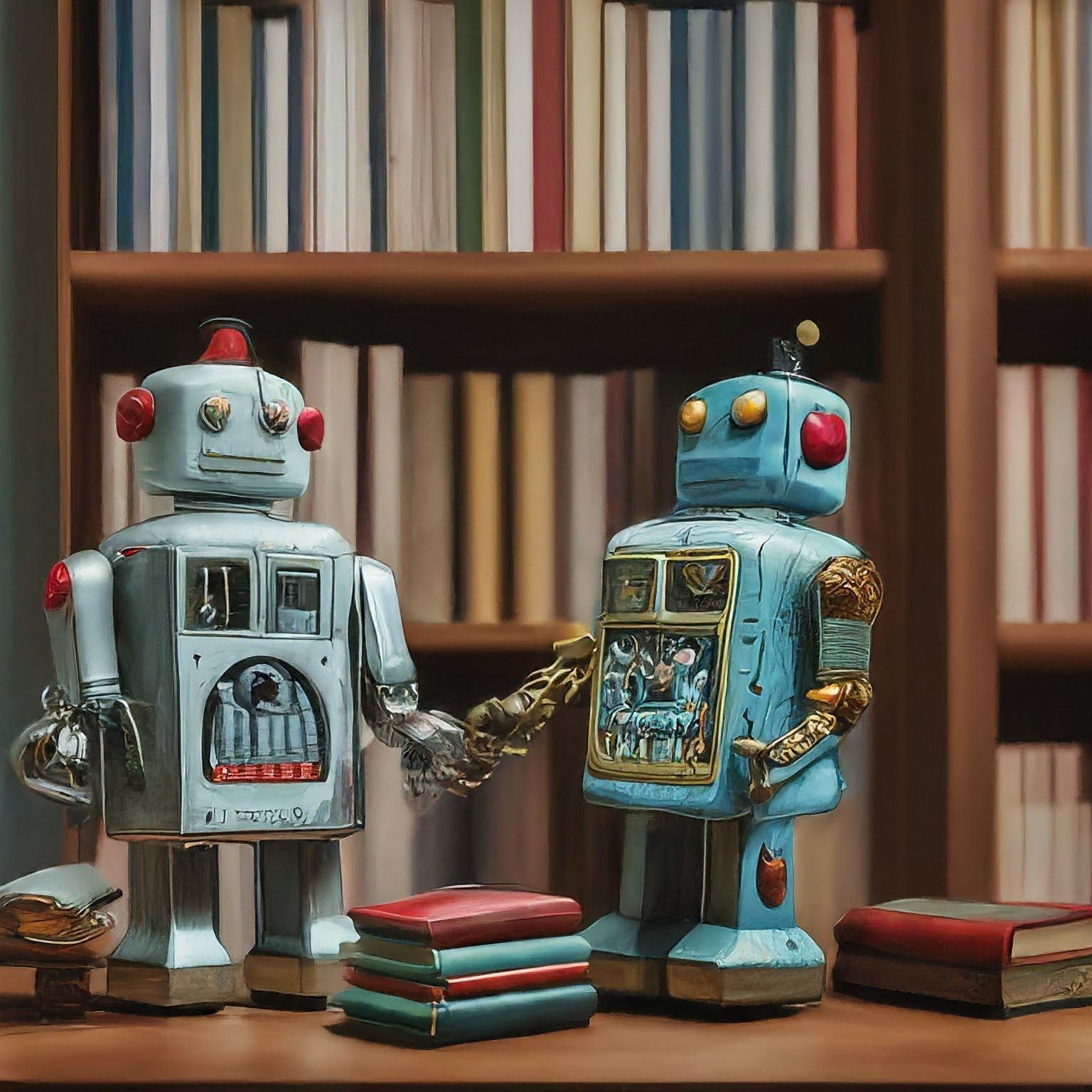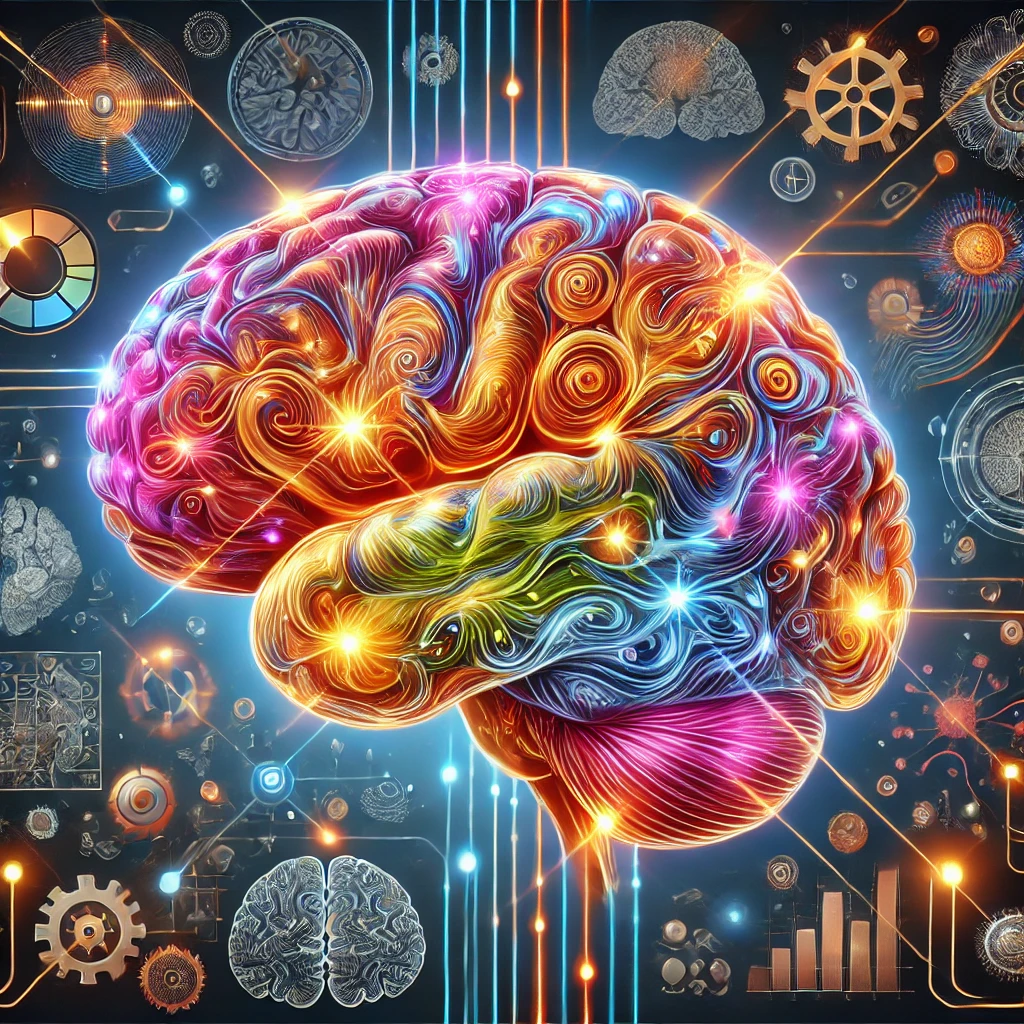Artificial Intelligence (AI) has made remarkable strides in recent years, drastically transforming how we interact with technology and the world around us. From editing images in seconds to real-time language translation, AI’s capabilities are growing exponentially. Among the many AI innovations, ChatGPT stands out as a groundbreaking tool, pushing the boundaries of what machines can achieve in understanding and generating human-like text. This article delves into the rapid evolution of AI, with a particular focus on ChatGPT, exploring its benefits, risks, and the ethical considerations that come with this powerful technology.
Table of Contents
Evolution of AI and Its Impact
From Hours to Seconds: The Speed of AI-Powered Content Creation
Gone are the days when creating realistic photoshopped images took hours of meticulous effort. Today, AI-powered tools allow us to generate and manipulate images almost instantly. Whether it’s adding a smile to a face or adjusting hair length with a single click, AI has made these tasks incredibly simple.
AI in Image Manipulation
AI tools like DALL-E and Photoshop’s AI features can create hyper-realistic images that are nearly indistinguishable from reality. These tools analyze vast amounts of visual data to understand and replicate human features, textures, and lighting, enabling users to make complex edits with minimal effort.
AI in Video and Audio Editing
AI’s influence extends beyond still images. It can now swap faces in videos, change voices, and even create entirely new video content based on a simple description. This has opened up new possibilities in filmmaking, content creation, and social media, where users can craft professional-quality videos without needing extensive technical skills.
Breaking Down Language Barriers with AI
One of AI’s most transformative capabilities is its ability to break down language barriers. Real-time translation and subtitle generation have made global communication more accessible than ever before.
Real-Time Translation and Subtitles
AI models like those used in Google Translate and other translation tools can understand and translate spoken language into English subtitles on the fly. This technology is particularly useful in global settings, such as international business meetings, where understanding across languages is crucial.
AI’s Role in Global Communication
By making content accessible to non-native speakers, AI is fostering a more connected world. It allows individuals to consume and create content in languages they might not be fluent in, thus expanding their reach and impact.
The Creative Power of AI
AI in Digital Art and Content Creation
AI has also become a powerful tool in the world of digital art, capable of generating complex paintings, animations, and even music in just seconds. This blend of creativity and speed is opening new frontiers in art and entertainment.
Generating Visuals from Text Prompts
Tools like MidJourney and Stable Diffusion have revolutionized digital art by allowing users to create detailed images based on simple text descriptions. Whether it’s a majestic eagle soaring over a mountain range or a futuristic cityscape, these AI models can produce stunning visuals that would take human artists much longer to craft.
AI-Driven Animation and Film Production
In the film industry, AI is being used to generate animations and even assist in scriptwriting. Marvel, for example, has incorporated AI into its animation pipeline to streamline the production of complex scenes. This technology is making it easier for creators to bring their visions to life, regardless of their technical expertise.
The Future of AI in Creative Industries
AI’s role in creative fields is only expected to grow, potentially redefining the way we think about art, music, and literature.
AI in Music Composition
Google’s music AI can generate compositions in various styles and instruments, catering to specific requests like “Bella Ciao on guitar.” This makes it possible for anyone to create personalized music without needing a background in music theory or composition.
The Role of AI in Writing and Literature
Similarly, AI can be used to write books, generate plot ideas, and even assist in editing. Companies like Amazon are exploring how AI can streamline the book publishing process, potentially leading to a new era of AI-assisted literature.
The Revolutionary Impact of ChatGPT
What is ChatGPT?
ChatGPT is a type of AI known as a Large Language Model (LLM), designed to understand and generate human-like text. Developed by OpenAI, ChatGPT has quickly become one of the most popular and widely used AI models in the world.
Understanding Large Language Models (LLMs)
LLMs are trained on vast datasets of text, allowing them to learn the patterns and nuances of human language. ChatGPT, for example, has been trained on diverse sources, including books, websites, and social media, enabling it to respond in a way that feels natural and conversational.
ChatGPT’s Development by OpenAI
OpenAI, the company behind ChatGPT, has been at the forefront of AI research. With the release of ChatGPT 3.5 in November 2022, they made this powerful tool accessible to the public, allowing anyone to experience the capabilities of AI firsthand.
ChatGPT’s Meteoric Rise
ChatGPT’s popularity skyrocketed soon after its release, becoming the fastest-growing online service in history.
Comparisons with Other Online Services
To put its success in perspective, consider this: It took Netflix 3.5 years to reach 1 million users, while Instagram reached this milestone in 2.5 months. ChatGPT, however, achieved it in just 5 days, highlighting its immediate appeal and widespread adoption.
User Experience and Accessibility
Part of ChatGPT’s success lies in its user-friendly interface and the fact that it was initially offered for free. Users can simply create an account on OpenAI’s website and start interacting with the AI, asking it anything from factual questions to creative writing prompts.
Role of AI in Daily Life
AI in Work and Productivity
AI is not just a tool for creative industries; it’s also transforming how we work, offering tools that can automate mundane tasks and enhance productivity.
Automated Email and Task Management
Imagine never having to manually sort through your inbox again. AI can automatically prioritize emails, draft responses, and even schedule meetings, freeing up time for more important tasks.
AI as a Virtual Assistant
AI-powered virtual assistants, like Google Assistant and Amazon’s Alexa, are becoming increasingly sophisticated, capable of managing everything from daily schedules to controlling smart home devices. These tools are making our lives more convenient and efficient.
AI in Education and Learning
AI is also set to revolutionize the education system, offering new ways to enhance learning and support teachers.
Enhancing the Educational Experience
AI can be used to create personalized learning plans, provide instant feedback, and even help explain complex concepts in a way that’s tailored to each student’s learning style. In Japan, for instance, guidelines have been published on how to effectively integrate AI into classrooms without encouraging cheating.
Ethical Considerations in AI-Assisted Learning
However, the rise of AI in education also raises ethical questions. While AI can be a powerful tool for learning, it also has the potential to enable cheating and reduce the need for students to develop critical thinking skills. Therefore, it’s crucial to find a balance between leveraging AI’s capabilities and ensuring that students still engage in meaningful learning experiences.
The Potential Risks and Ethical Dilemmas of AI
The Threat to Jobs and Employment
As with any transformative technology, AI brings with it significant risks, particularly in the job market.
Historical Context of Job Displacement
Throughout history, technological advancements have often led to job displacement. For example, the advent of ATMs reduced the need for bank tellers, while the rise of online booking platforms led to a decline in travel agency jobs. However, AI’s impact on employment could be far more widespread.
AI’s Unique Impact on Creative Jobs
For the first time, creative jobs—long thought to be safe from automation—are at risk. AI tools like MidJourney can generate logos and artwork, potentially replacing graphic designers. Similarly, AI-generated music could reduce the need for composers and musicians.
The Role of AI in Political Propaganda
One of the most concerning uses of AI is in the realm of political propaganda. AI’s ability to analyze and manipulate data can be exploited to influence public opinion on a massive scale.
Case Studies of AI in Elections
The 2016 US Presidential election and the Brexit vote in the UK are early examples of how AI and machine learning can be used to target voters with personalized ads based on their online behavior. These tactics, while not widely understood at the time, had a profound impact on the outcomes of these events.
Future Implications for Democracy
As AI technology advances, the potential for its misuse in politics grows. AI could be used to create deepfake videos, generate misleading information, and amplify propaganda, all of which could undermine the democratic process.
Scams and Frauds in the Age of AI
AI in Fraudulent Activities
With the rise of AI, scammers have found new ways to exploit technology for fraudulent activities.
Voice Cloning and Identity Theft
One of the most alarming developments is the use of AI to clone voices. Scammers can now mimic the voices of family members to trick victims into sending money. According to a report by McAfee, AI voice cloning tools can create a near-perfect match with just a few seconds of audio.
AI-Generated Scam Emails
AI’s ability to generate grammatically correct and persuasive text makes it easier for scammers to create convincing phishing emails. These AI-generated emails are much harder to detect than the poorly written scams of the past.
The Importance of AI Awareness and Education
To protect against these new threats, it’s essential to raise public awareness about AI and its potential for misuse.
Public Awareness Campaigns
Governments and organizations should invest in public education campaigns to inform people about how AI works and the risks associated with it. This knowledge can help individuals recognize and avoid scams before they become victims.
Preparing for AI-Driven Challenges
As AI continues to evolve, it’s crucial that society keeps pace with these changes. This means not only educating the public but also ensuring that regulatory frameworks are in place to prevent abuse of AI technologies.
The Future of AI and Robotics
The Integration of AI in Humanoid Robots
AI’s integration into robotics is bringing us closer to a future where machines can interact with the physical world in ways that were once only imagined in science fiction.
Advances in Robotics with AI
Robots like Boston Dynamics’ Atlas are already performing tasks with a level of precision and agility that rivals human workers. These robots can run, jump, and navigate complex environments, making them valuable in industries like construction and logistics.
The Emergence of Artificial General Intelligence (AGI)
As AI continues to advance, the concept of Artificial General Intelligence (AGI)—machines that can perform any intellectual task a human can—is becoming more feasible. While AGI is still years away, its potential impact on society is profound, raising questions about the future of work, ethics, and even human identity.
Philosophical and Ethical Questions About AI
The rise of AI also brings with it deep philosophical and ethical questions, particularly around the idea of machines surpassing human intelligence.
The Possibility of AI-Created Religions
Yuval Noah Harari, a renowned historian, and philosopher, has suggested that AI could one day create its own religious texts and even have worshippers. This raises questions about the role of AI in shaping culture and belief systems.
Navigating the Uncertain Future of AI
As we look to the future, it’s clear that AI will play an increasingly central role in our lives. However, with this power comes the responsibility to ensure that AI is developed and used in ways that benefit humanity as a whole. This will require careful consideration of the ethical implications and a commitment to using AI for good.
Key Points at A Glance
- Job displacement.
- Political propaganda.
- Scams and fraud.
- Ethical concerns in AI-assisted learning.
- Misuse in robotics.
- Artificial General Intelligence (AGI).
- Cultural and philosophical impact.
- Privacy concerns.
Conclusion
Artificial Intelligence is not just a technological advancement; it’s a force that is reshaping every aspect of our lives. From creative industries to education, politics, and beyond, AI’s impact is profound and far-reaching. As we continue to integrate AI into our world, it’s crucial that we do so with caution, ensuring that this powerful tool is used responsibly and ethically. The future of AI holds immense potential, but it also presents significant challenges that we must navigate carefully.
FAQs
- What is the main purpose of AI?
- The main purpose of AI is to perform tasks that typically require human intelligence, such as understanding language, recognizing patterns, and making decisions, often at a much faster and more efficient rate.
- How does ChatGPT differ from other AI models?
- ChatGPT is a Large Language Model (LLM) specifically designed to generate human-like text based on vast amounts of data, making it highly effective in conversational contexts, unlike other AI models that may focus on different tasks like image recognition or predictive analytics.
- Will AI take over all human jobs?
- While AI may replace some jobs, especially those involving repetitive tasks, it is also expected to create new job categories. The key is to adapt and acquire skills that complement AI, rather than compete with it.
- How can AI be used safely and ethically?
- AI can be used safely and ethically by implementing strict regulations, promoting transparency in AI algorithms, ensuring data privacy, and raising public awareness about the potential risks and benefits of AI technologies.
- How can individuals adapt to AI advancements?
- Individuals should focus on continuous learning, especially in areas related to AI and technology, and develop skills that are likely to be in demand in an AI-driven world, such as critical thinking, creativity, and technical proficiency in AI tools.



